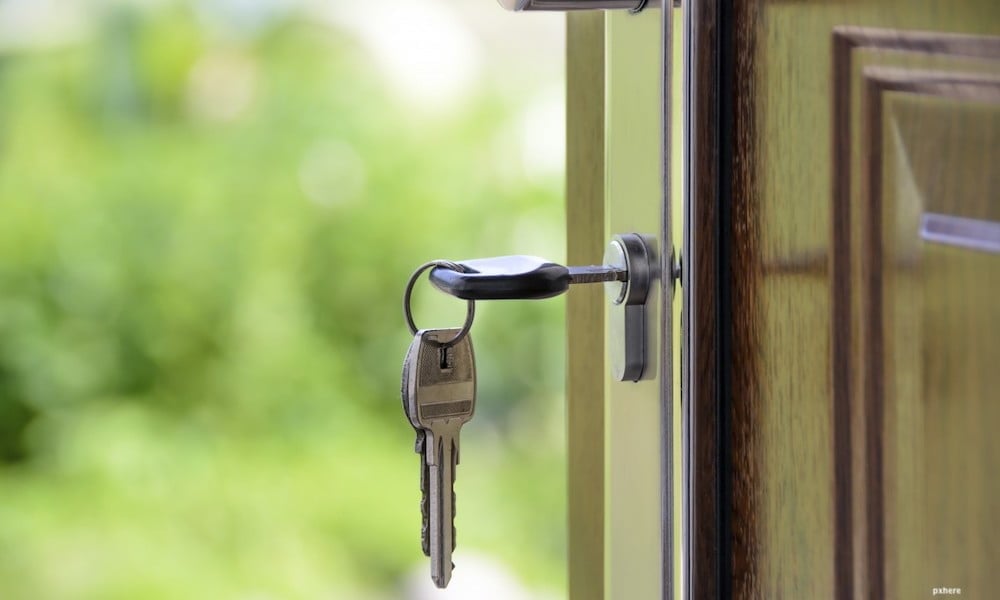Management
Keyholder responsibilities explained

Your business might have employees who require regular access to the premises, sometimes outside normal business hours. This requires a degree of control of keys given to such employees. In addition, many businesses have an alarm system to detect intruders while the premises are closed. Therefore, one or more trusted employees must be responsible for unlocking, locking, and setting the alarm daily.
A key-holders responsibilities
Key-holder employees are responsible for opening and closing business premises daily.
Depending on your business’s hours, you might require multiple key holders. One attends when the business opens, and another hears when the company closes. The process of unlocking and locking will involve the various entrances that customers and service providers pass through. It will also include managing the alarm system that protects the business premises.
In cases where businesses handle cash, a key holder might be responsible for safely storing and arranging for the safe transport of daily takings. Key holders tend to be senior employees in the company, so their role is likely to be in conjunction with other daily tasks, including managing staff or being in charge of customer services.
The role of a key holder in an emergency
In addition to locking up daily, your key-holder will be responsible for attending the business premises when an intrusion is detected. Most beliefs have alarm systems that alert them, management, and security services when an entry point is opened outside business hours. Establishing procedures for them to follow when they attend to an intrusion alarm is imperative.
Key-holders should always advise others when they visit the premises to check on an alarm and should ideally be joined by a second key-holder. It is crucial to take a strong flashlight along to light up dark areas on the premises, and a mobile phone is essential in case the police or emergency services need to be called. If a site is discovered to be insecure and there is any suspicion that criminals might be inside, they should not enter under any circumstances. Instead, they should call the police for support.
Good candidates for key-holder responsibilities
Employees given the responsibilities associated with the role are in a position of trust. Typically, it will be an employee who has been with the company for an extended period, already taking on some degree of responsibility in a financial or managerial role. You need to appoint a person who can be trusted to respond to emergencies and always arrive at work on time.
A crucial requirement for these employees is to live within a short distance of the workplace. Depending on how your employees usually commute to the office, this needs to be someone who has easy access to public transport to your business premises.
However, remember that they sometimes have to attend work at odd hours and that public transport may not be available, so your key-holder should also be able to drive or be driven to the premises.
The ability to assess risks is another crucial qualifying factor because, in the role, the person needs to spot and report any potential security issues. These employees need a safe space at home to store keys, and you might want to consider appointing several people to this role in case your key-holder is unavailable due to illness.
Outsourcing key-holder duties
Many businesses remove key-holding from staff and pay a company to assist them. This is often a good solution if owners and management staff resist attending the business premises outside of hours and if staff turnover is high, making it challenging to assign positions of responsibility to any individual person. Even if you have a staff member responsible for the role, you could hire a company to help with out-of-hours emergencies.
Professional, accredited companies are trained to deal with alarms outside office hours. Without appropriate training, staff members might put themselves at risk when there is a real alarm.
Key-holder services inspect the premises and liaise with emergency services if necessary. The company will also arrange for door repairs and fixes in the case of a break-in.
Making sure key-holders are fully informed
When you appoint a staff member, you must thoroughly train them to secure your business premises. Record all the keys in use and regularly check that the correct people are still holding them. Alarms are essential for preventing intrusions outside of business hours, so ensure you have thoroughly trained your key-holder to correctly activate them upon close of business.
Key-holders should have some means of staying in touch with other employees, so you might want to supply a dedicated mobile phone to alert others when needed at the business premises. Staff who rotate the duties can pass these reliable devices to their colleagues when they take on the role.
Key-holding is a leadership position.
The staff members you appoint to the role are placed in a position of responsibility and must show leadership skills. You have to make sure you select responsible individuals.
Your employees must express a sense of confidence and respect for their fellow employees. Businesses have valuable goods and equipment on-site, and your key holder is ultimately responsible for keeping those assets safe around the clock.






